The Last Emperor Blu-ray Movie
HomeThe Last Emperor Blu-ray Movie 
Criterion | 1987 | 163 min | Rated PG-13 | Jan 06, 2009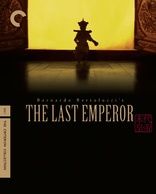
Movie rating
8 | / 10 |
Blu-ray rating
| Users | 3.9 | |
| Reviewer | 4.5 | |
| Overall | 4.5 |
Overview
The Last Emperor (1987)
The life of Emperor Pu Yi, who took the throne at age three, in 1908, before witnessing decades of cultural and political upheaval, within and without the walls of the Forbidden City.
Starring: John Lone, Joan Chen, Peter O'Toole, Ruocheng Ying, Victor WongDirector: Bernardo Bertolucci
| Drama | Uncertain |
| Period | Uncertain |
| History | Uncertain |
| Epic | Uncertain |
| Biography | Uncertain |
Specifications
Video
Video codec: MPEG-4 AVC
Video resolution: 1080p
Aspect ratio: 2.02:1
Original aspect ratio: 2.39:1
Audio
English: DTS-HD Master Audio 2.0 (48kHz, 24-bit)
Subtitles
English SDH
Discs
50GB Blu-ray Disc
Single disc (1 BD)
Packaging
Slipcover in original pressing
Playback
Region A (locked)
Review
Rating summary
| Movie | 5.0 | |
| Video | 4.5 | |
| Audio | 4.5 | |
| Extras | 4.5 | |
| Overall | 4.5 |
The Last Emperor Blu-ray Movie Review
Reviewed by Dr. Svet Atanasov December 21, 2008Winner of nine Oscar awards, including Best Picture and Best Director, Bernardo Bertolucci’s “The Last Emperor” (1987) chronicles the tragic story of Pu Yi, the last of the great Chinese rulers. Beautifully-lensed and impeccably acted, the picture is regarded by many as one of the last true epics of our time. Courtesy of the Criterion Collection. Region-A "locked".
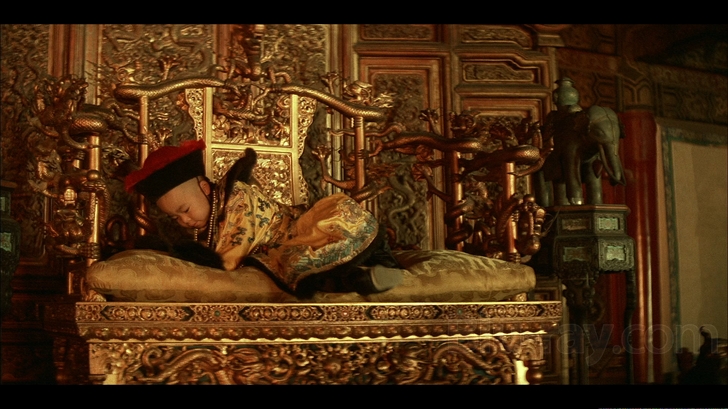
The Emperor
At the age of 3, Pu Yi (John Lone) is taken away from his mother, sent to the Forbidden City and crowned Emperor of China. He is not allowed to interact with the outside world. As time goes by, Pu Yi becomes more and more frustrated with the cannons he is expected to respect.
Outside the Forbidden City, the world is quickly changing. The Japanese Army invades China and Manchuria; then Mao’s forces take over. In the beginning, Pu Yi is spared from the political turmoil, but he is eventually sucked into it. A British mentor (Peter O’Toole) arrives to the Forbidden City and inspires the Emperor to begin searching for a new identity. Pu Yi also marries a beautiful girl (Joan Chen).
Pu Yi abdicates in 1912. Later, he returns to Manchuria, hoping to be an Emperor again, but is tricked by the Japanese invaders and consequently, after WW2 comes to an end, captured by the Red Army. The last Emperor is then transferred to a Chinese prison where the communists begin to question his history with the Japanese.
The Last Emperor is Bernardo Bertolucci’s most highly-decorated picture. Visually, it is a stunning tour de force, which few of its contemporaries, if any, could rival. It is also Bertolucci's -- a passionate Marxist -- most elegant yet uncompromising critique of absolute power.
Despite the fact that The Last Emperor chronicles an incredibly dramatic story, referencing to a number of key political events from the beginning of the century, its tone is notably intimate. In fact, Pu Yi’s struggle to adapt to the world he has been kept away from, and consequently change it according to his vision, seems uncannily subdued. Not surprisingly, The Last Emperor is filled with a number of protracted close-ups where Pu Yi’s face is examined -- pain, joy, disappointment and elation are captured by Bertolucci, without resorting to high-powered lines.
Still, even though Bertolucci spends an enormous amount of time on Pu Yi and his maturation as a leader, his persona remains a perplexing enigma. There are controversial decisions the Emperor produces while juggling with the colonial interests of the Japanese, and later, Mao’s communists, that are difficult to fully comprehend. Logically, Bertolucci’s quiet but thorough examination of Pu Yi’s history enhances even more the divisive elements in his legacy.
The Last Emperor has been shown to audiences around the world in two different versions -- a shorter version (164 min), also referred to as the Theatrical Cut, which is found on this Blu-ray disc, and a longer version (218 min), which was reconstructed for Italian TV. I’ve seen both and frankly have a difficult time deciding which is the more compelling one. The theatrical cut maintains a steady tempo, which given the story’s episodic structure is probably the preferred way to see this film. I would also say that it links a lot of the political events I mentioned earlier without dramatically widening the gap between Pu Yi‘s political and personal lives. On the other hand, the TV version adds substantially more, particularly in regard to Pu Yi’s childhood years. However, here Bertolucci also elaborates on a lot of the political intrigues from the second half of The Last Emperor. As a result, the intimate tone of the story is substantially weakened.
Nevertheless, The Last Emperor remains a poignant account of a historic figure whose rise and fall at a time of great political turmoil are unquestionably fascinating to behold. Furthermore, the film effectively dispels a number of myths about absolute power that, somewhat ironically, are still alive and well in the Emperor’s homeland.
The Last Emperor Blu-ray Movie, Video Quality 
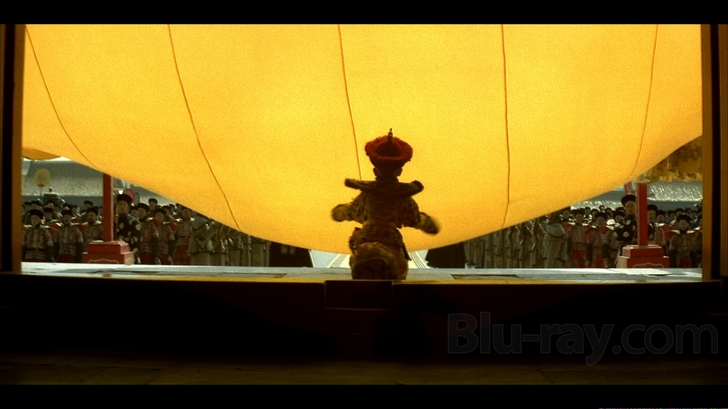
Presented in an aspect ratio of 2.02:1, encoded with MPEG-4 AVC and granted a 1080p
transfer, Bernardo Bertolucci's The Last Emperor arrives on Blu-ray courtesy of
Criterion.
Those of you who have already taken a look at Criterion's DVD release of The Last
Emperor probably have a pretty good idea what to expect from this Blu-ray disc -- a high
definition digital transfer supervised and approved by cinematographer Vittorio Storaro.
Overall, this is a notably healthy high-definition transfer. Its color-scheme, for example, is rich and natural-looking. Orange, red, green, and blue are all with prominent roles in The Last Emperor, and the high-definition transfer certainly allows them to be as effective as possible. The blacks on the other hand are also convincing - during the first half of the film they are slightly less saturated than they are during the second half (past the Japanese takeover of
Manchuria), but healthy and solid looking. Furthermore, the delicate grain-structure of the
film is intact. I compared the Blu-ray release with the DVD release and, as far as I am
concerned, heavy DNR alterations have not been applied here. I noticed a bit of shimmering as well as digital noise during some of the panoramic vistas (the desert inauguration of the
Emperor in particular), but overall I was most definitely pleased with the look of Criterion's
high-definition transfer. Finally, I did not detect any disturbing specks, debris, or scratches. (Note:This is a Region-A "locked" Blu-ray release. Therefore, you must have a native Region-A or Region-Free player to access its content).
The Last Emperor Blu-ray Movie, Audio Quality 
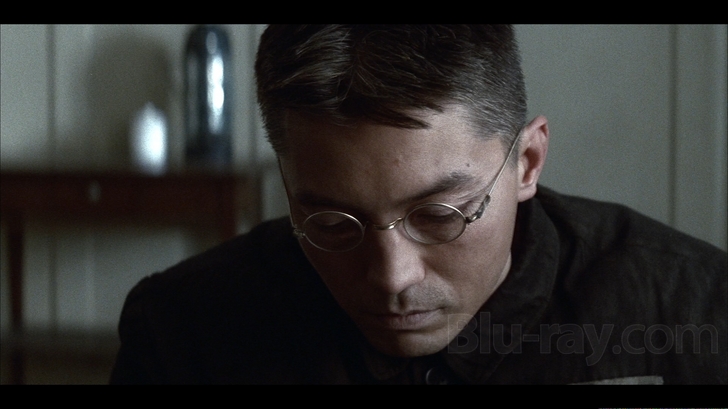
An English, with portions of Mandarin and Japanese, DTS-HD MA 2.0 mix is what Criterion have provided for their release of The Last Emperor. There is a sizable difference between the DTS-HD MA track the Blu-ray disc boasts and the audio treatment the DVD offers. I could list a number of very specific examples in support of this statement but, suffice to say, you could pick any of the mass scenes from the first half of the film, and compare them with the corresponding scenes on the DVD release (I strongly recommend listening to the large horns in the Forbidden City when the Emperor captures the cricket). The dialog is also crisp and very easy to follow. The English subtitles on the other hand are very well done and free of grammatical errors (I must note that I watched the film with the English subtitles on, as I still have a difficult time with some of the accents). I did not detect any pops, cracks, dropouts
The Last Emperor Blu-ray Movie, Special Features and Extras 
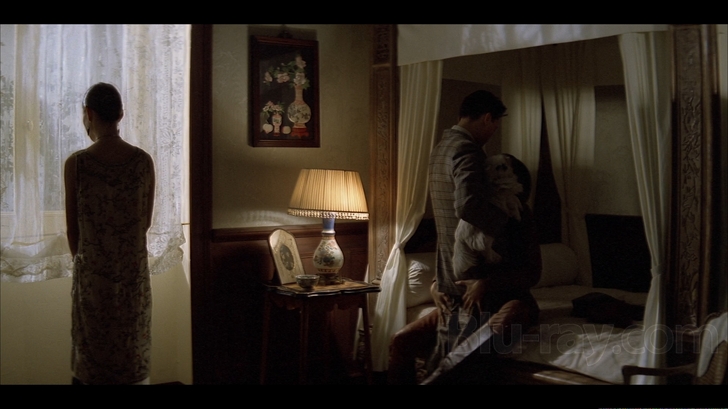
- Commentary - this audio commentary with Bernardo Bertolucci, producer Jeremy Thomas, screenwriter Mark Peploe, and composer-actor Ryuichi Sakamato was produced by Mark Rance between 2003 and 2007. It offers an in-depth analysis of the film and its production history. It also appears on the Criterion Blu-ray release of The Last Emperor.
- The Italian Traveler, Bernardo Bertolucci - this archival documentary, produced by Fernand Moszkowicz, assistant director on Last Tango in Paris, examines Bernardo Bertolucci's geographic influences and their representation in his work. A large section of the documentary is dedicated on the production of The Last Emperor. In French, Italian, and English, with English subtitles where necessary. (54 min).
- Postcards From China - presented here is raw footage from Bernardo Bertolucci's trip to China in 1985, where he researched landscapes, faces, and atmosphere. The footage, which was shot by Bertolucci, can be viewed with an optional audio commentary. In Italian, with English subtitles. (8 min).
- Bernardo Bertolucci's Chinese Adventure - this archival documentary chronicles the production of The Last Emperor. It was made by Paolo Brunatto on the set of The Last Emperor in 1986. In Italian and English, with English subtitles where necessary. (51 min).
- Making The Last Emperor - this archival documentary gathers interviews with cinematographer Vittorio Storaro, editor Gabriella Cristiani, costume designer James Acheson, and art director Gianni Silverstri, who worked closely with the late production designer "Nando" Scarfiotti. In Italian and English, with English subtitles where necessary. (46 min).
- The Southbank Show - presented here is an archival episode of Britain's The Southbank Show, shot on location in Beijing, which focuses on the conception and production of The Last Emperor. In English and Mandarin, with English subtitles where necessary. (67 min).
- David Byrne - in this archival program, composer David Byrne discusses his contribution to The Last Emperor. The program was produced for Criterion in New York City in 2007. In English, not subtitled. (26 min).
- Beyond the Forbidden City - in this archival program, cultural historian Ian Buruma discusses China's more recent history and some of the key events and figures that impacted the life and reign of Pu Yi. In English, not subtitled. (46 min).
- The Late Show: Face to Face - presented here is an archival episode of the British television arts magazine The Late Show: Face to Face in which host Jeremy Isaacs discuses with Bernardo Bertolucci his Oscar award for The Last Emperor. The episode was broadcast in 1989. In English, not subtitled. (31 min).
- Trailer - presented here is a vintage trailer for The Last Emperor. In English, not subtitled. (3 min).
- Booklet - an illustrated booklet featuring an essay by film critic David Thomson, a reminiscence by Bernardo Bertolucci, interviews with production designer Ferdinando Scarfiotti and actor Ying Ruocheng, and an essay by Fabien S. Gerard, as well as technical credits.
The Last Emperor Blu-ray Movie, Overall Score and Recommendation 
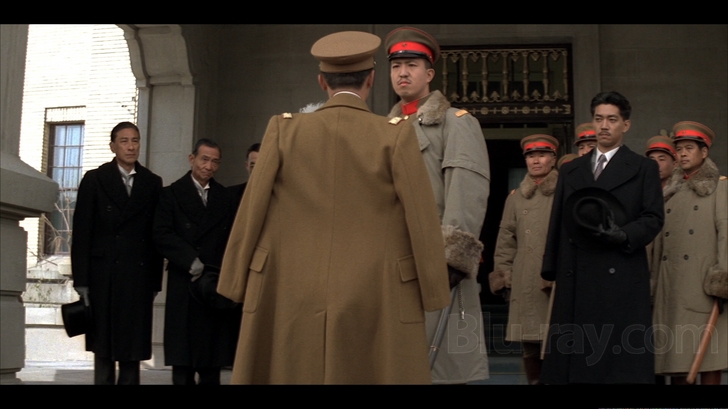
A visual stunner, Bernardo Bertolucci's The Last Emperor is a fascinating film, mixing history with drama in a somewhat controversial fashion. The story of Pu Yi, the last of the great Chinese rulers, is told through a series of flashbacks highlighting key events from his coronation to his imprisonment by Mao's followers. Criterion's Blu-ray release is an excellent opportunity to see this Oscar-winning film with a deserving transfer. Very Highly Recommended.
Other editions
The Last Emperor: Other Editions
Similar titles
Similar titles you might also like

Nixon
Election Year Edition
1995

The Iron Lady
2011

The Irishman
2019

Che: Part One
2008

The Queen
2006

Malcolm X 4K
1992

Hunger
2008

The Bridge on the River Kwai
1957

Mandela: Long Walk to Freedom
2013

Barry Lyndon 4K
1975

Schindler's List 4K
25th Anniversary Edition
1993

The Last King of Scotland
2006

The Social Network
Collector's Edition
2010

Che: Part Two
2008

The King's Speech
2010

John Adams
2008

Gandhi 4K
1982

J. Edgar
2011

Winnie Mandela
2011

Nicholas and Alexandra
Limited Edition to 3000 - SOLD OUT
1971

